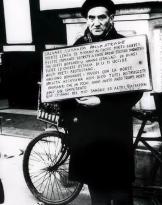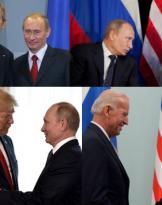The military defeat of the self-styled Islamic State has again changed the balance of power within the jihadist scenario, bringing to the surface terrorist groups first swallowed up by unusual alliances. In this context, al-Qaeda, more than others, has shown an incredible ability to adapt quickly to changes imposed by the war contingencies. From 2014 the organization led by Ayman al-Zawahiri has positioned itself as an alternative interlocutor to the brutality of ISIS, avoiding, in an intelligent way, useless trials of strength with the "Caliph" al-Baghdadi. During the war in Syria, al-Qaeda manifested chameleonic qualities that ensured its survival and the possibility of reconquering the lost credibility again on the day when the Egyptian sheikh had blamed the birth of the Caliphate. Today al-Zawahiri has 66 years and if we had to draw up a balance sheet of his leadership, we undoubtedly have a long-term vision, especially in the choices regarding the alliances and the opportunities to be pursued. The leadership of the Egyptian doctor - which is unchallenged by the 2011 - today has a possible new successor, whose name emerges from the gotha of jihadism: Hamza bin-Laden.
The favorite
Osama bin-Laden - the opposite of many of his fundamentalist coreligionists - has always had a profound respect for his consorts even if, among all, only one became the favorite: Khairia Sabar, a psychologist, daughter of an eminent family of Saudi Arabia. In 1989, Khairia gave birth to little Hamza, the same day that Osama's fourth wife, Siham Sabar, gave birth to another heir named Khalid. The life style of bin Laden reflected the needs of the head of the family: almost always hidden, forced to Spartan habits and ready to escape the approach of imminent dangers. When the leader of al-Qaeda was forced to leave the shelter in Sudan, little Hamza was only seven years old and - without much explanation - he found himself living in Afghanistan among uncomfortable caves and dark underground shelters1. The years spent in the mountains forged the spirit of the young Hamza who immediately showed a morbid attachment to his father: "he appeared in propaganda videos alongside his father, underwent assault training with al-Qa'ida fighters, and preached fiery sermons in a young boy's helium voice"2. Father and son shared the days until the fateful eve of the Twin Towers attack when, for security, Osama moved his wife and children to a safe haven in Pakistan, Jalalabad. In Afghanistan, Hamza idealized the paternal image he perceived as that of a brave warrior; for his part, the Sheikh behaved like a father who was attentive and very attentive so that his son's education would not lead to a mere military training: "Hamzah could become a great mujahid but first needed time to mature"3.
The Iranian experience
The September 11 attack shook the world balance, including those of the bin Laden family, which abandoned the Afghan strongholds to temporarily repair in Pakistan and then Iran.
For the leader of a Sunni organization to seek protection from a Shi'ite-dominated country was indeed a risky choice, yet Iran was the only Muslim nation where America would never have dared to send its avengers. Moreover, from the 1992, when Osama still resided in Sudan, Hezbollah and the leaders of al-Qaeda signed a kind of tacit agreement in the name of the common struggle against the American evil empire4. The relations between the bin-Laden family and the Iranians, however, remained on the verge of mutual diffidence, despite the pacts and frenetic mediation of Atiyya Abdul Rahman, a Libyan Ayatollah known as Mahmud. From the 2003 the Iranian secret service began to mark the bin Laden's moves by placing them under observation; for the Saudi family the following years passed within a military structure of the Quds Force near the capital Tehran and although there were no lack of comfort, they were unable to communicate with the rest of the world5.

Despite the difficulties, Hamza went on with an alacrity of her educational path, intensifying the reading of the Koran, and moreover she married to the daughter of Abu Mohammed al-Masri, his preceptor and military commander of al-Qaeda. The lack of the father, however, anguished the soul of the boy: "How many times - wrote in the 2009 - from the depths of my heart, I wished to be beside you. I remember every smile that you smiled at me, every word that you spoke to me"6. In the missives sent to his father, Hamza not only revealed the anxiety to see him again, but above all the uncontrollable desire to join him to face the future battles. Osama chose not to listen to his son's requests, but he was aware that his kinship could not remain long in the hands of the Iranians. In Tehran, the situation was, in fact, evolving towards the worst and the climate seemed to no longer be favorable to the Sunni leader. At the end of the 2010 Osama bin-Laden claimed to the Iranians the freedom for his wife and children in exchange for the life of a Shiite diplomat held prisoner in Pakistan. In exchange, Hamza and her mother fled to Waziristan, together with her older brothers Uthman and Mohammed: from that moment the bin-Laden family undertook different paths and for some mortals.
Uncertain fate
Osama bin Laden feared that his son would remain in Pakistan, for he had great plans in store and perhaps finding him a shelter in Qatar would be the best choice. According to the Libyan Mahmud, Qatar was however an unreliable state because close to the United States and able to deliver the favorite in the hands of Washington for any kind of gain. Hamza (21 years), together with Uthman (27 years) and Mohammed (25 years) remained in Waziristan at the mercy of the paternal choices7. The Saudi sheikh was torn between the desire to have his son next door and the fear of losing him as happened to Saad, killed in the 2009 by an American missile. In early April 2011 Hamza, accompanied by his family, embarked on a long and dangerous journey to the paternal shelter of Abbottabad, crossing Baluchistan and then crossing the Khyber pass, but luckily it had not yet reached its destination when the Team Six of the American SEALs broke into the Pakistani compound by killing their father and his brother Khalid. The mother Khairia was taken prisoner and taken to a Pakistani prison, while the rest of the bin-Ladens remained imprisoned in Saudi Arabia near Jeddah. From that moment Hamza made his tracks lose until Ayman al-Zawahiri released a radio message in which, beyond his voice, he heard that of "a lion from the den of al-Qa'ida", Whose name was Hamza Usama bin-Laden.
The long-awaited dawn to face the enemies of his father openly had finally arrived; in his first declaration to the Islamist world the debutant Hamza spent sentences of praise on the martyrdom of his relatives, addressing all the brothers of al-Qaeda in Syria, Iraq, Yemen and North Africa.
The messages of the Saudi novice did not contain anything original and resumed, broadly, the texts used by other known preachers Jihadists. For example, in his recent proclamation The Cause of Islam is the Cause of Islam he urged Muslims around the world to mercilessly strike the Western enemy, drawing inspiration from the teachings of Abu Musab al-Suri about the need for spontaneous and individual actions. "So let us be proud of the West and its hatred for us. - emphasized Hamza - Let's be proud of the West's profiling of us as 'terrorists', for this no allegation; it is a badge of honor "8.
In every speech (carefully spread in Arabic and English), Hamza eschews the use of video cameras, especially to protect his image, nevertheless the tenor of anathemas resembles very much those of his father and - points out Ali Soufan - "frequently repeat, almost word-for-word, phrases uttered by the elder bin Ladin during al-Qaidas's heyday in the late 1990s and early 200s"9.
The attempt by al-Zawahiri to impose the direct descendant of bin-Laden takes place just as the Islamic State seems to have exhausted men and resources in the desperate struggle for its own survival. Can Hamza really represent the new face of al-Qaeda? Certainly the fact of being direct descendant of the Saudi sheikh exerts an undoubted fascination on all Jihadists now orphans of the dream of a Caliphate. It is no coincidence that precisely the aforementioned proclaims The Cause of Islam is the Cause of Islam was addressed to all the mujahideen fighters in Syria, calling them to unity and the strenuous fight against tyrants. Thomas Joscelyn, however, raises a very important question that affects precisely the addressees of his speech: Hamza cites, in fact, many times the community of mujahid, but without mentioning the group to which it belongs. This forgetfulness reflects the complex situation experienced by the Qaedists in Syria: the end of the Al Nusra front, the transformation into Jabhat Fath to the Sham and finally the fusion in Hay'at Tahrir to the Sham10. It is, in fact, of fundamental importance that Hamza bin Laden disclose a message of union, proposing itself as the symbol around which reassemble the ranks for a new Jihad.
Despite the noble natives for Osama's heir, the road to fully acquire the leadership al-Qaeda is still uphill: the obsessive references to the paternal figure prove an incomplete maturity, difficult to achieve in the current contingencies. Unlike his father, Hamza does not enumerate in his curriculum war experiences or even any form of political or religious militancy. The path taken by Osama bin Laden to create from scratch the most powerful Islamist organization in the world is difficult to replicate, but above all we must not forget how currently the Western forces maintain the highest level of attention compared to the veiled disinterest shown in the eighties. Hamza is already wanted by intelligence services around the world and recently the CIA released a video that immortalized it during the celebration of his marriage11. To date we do not know what the potential of Hamza is actually a possible leader of al-Qaeda, also because overall the jihadist offensive seems to have accused the blow inflicted by the Western allies. The only thing that is plausible is that the end of the Islamic State was effectively functional to al-Qaeda's ambitions to re-propose itself to the world as a guide or "revolutionary vanguard" of all Islamist movements12.
1 Meanwhile, Osama's second wife, Khadija Sharif, divorced him while in Sudan and the first, Najwa, left him just before the 9 / 11. Ali Soufan, Hamza bin Laden: From Steadfast Son to Al-Qa'ida's Leader in Waiting, in "CTC Sentinel", September 2017, p. 2.
2 Ibid.
3 Cathy Scott-Clark-Adrian Levy, The Exile. The Stunning inside Story of Osama bin Laden and al-Qaeda in Flight, New York-London, 2017, p. 370.
4 Hamza bin Laden. How Iran is Trying to Revive al-Qaeda, SAPRAC Saudi American Public Relations Affairs Committee, URL: https://www.saprac.org/uploads/2/4/0/6/24062436/hamza_bin_laden_-_how_ir...
5 The person responsible for the security of the bin Laden family was the commanding officer of the Quds Force Qassem Suleimani. The whole Iranian period is well documented in the cited work The Exile.
6 Soufan, cit., P. 2.
7 The only son left to be with his father Osama was Khalid, son of his fourth wife Siham, born on the same day as Hamza.
8 Hamza bin-Laden, The Cause of al-Sham is the Cause of Islam, of the 14 September 2017. URL: https://www.longwarjournal.org/wp-content/uploads/2017/09/17-09-14-Hamza...
9 Soufan, cit., P. 5.
10 Thomas Joscelyn, Hamza bin Laden tries to rally jihadists in Syria, in "FDD's Long War Journal", September 14, 2017, URL: https://www.longwarjournal.org/archives/2017/09/hamza-bin-laden-tries-to...
11 Thomas Joscelyn, CIA releases video of Hamza bin Laden's wedding, in "FDD's Long War Journal", November 1, 2017, URL: https://www.longwarjournal.org/archives/2017/11/cia-releases-video-of-ha...
12 Anne Stenersen, Thirty Years after its Foundation - Where is al-Qaida Going ?, in "Prespectives on Terrorism", Vol. 11, Issue 6, December 2017, p. 8, URL: http://www.terrorismanalysts.com/pt/index.php/pot/article/view/653/1300












